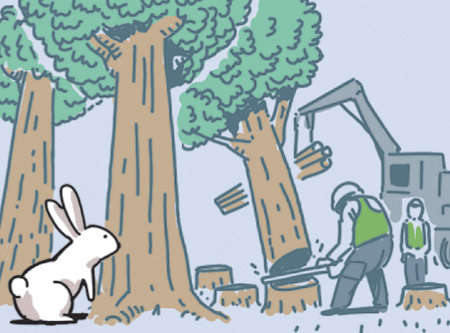Sixth great extinction looms on Planet Earth
Sixth great extinction looms on Planet Earth
Posted October. 17, 2020 08:03,
Updated October. 17, 2020 08:03

There is an advertisement dubbed “Hero's Journey.” In this ad, American actress Melissa McCarthy navigates through the sea in a motor boat to protect whales. She climbs up a giant tree to prevent logging. She struggles while striving to protect rhinos. The message that living creatures on Earth should be protected is effectively conveyed in this short ad. This ad was meant to promote a hybrid vehicle made by a Korean carmaker. The Forbes magazine singled out this as one of the most notable advertisements in the 2017 Super Bowl in the U.S.
In the history of planet earth, there were five incidents of great extinction wherein 70% to 95% of living organisms went into extinction. Stanford University Professor Paul Ehrlich said Earth is experiencing the sixth great extinction caused by human beings. His research team claims that the extinction of biological species is progressing much faster than projected. He said the trend of extinction over the past 150 years reached a level on par with the level of extinction, which unfolded during the period of 11,700 years. Most of the species that go into extinction live in areas where humans’ influence is significant. The research team argues this is the evidence that the sixth great extinction caused by humanity is currently progressing, showing the start of destruction of biological diversity.
The World Wild Life Fund released “Living Planet Report 2020” in September. The report says biological diversity on Earth is declining drastically. According to the report, the average sizes of mammals, birds, reptiles, and fish populations that were monitored from 1970 to 2016 declined by 68 percent on average.
If diverse biological species disappear, stable climate, clean air and water, pollination of crops, and prevention of infectious diseases among wild life will also disappear. As an example, if honeybees vanish, the production of fruits, vegetables and grains that are pollinated by bees will decrease and humanity are expected to gradually perish due to food shortages and malnutrition.
The advertisement mentioned in the beginning urges the public to start with easy things -- rather than difficult ones -- to protect the environment, saying that it is difficult to become a hero of environmental protection. Why don’t we start with trivial things that we can do to help protect the environment?








